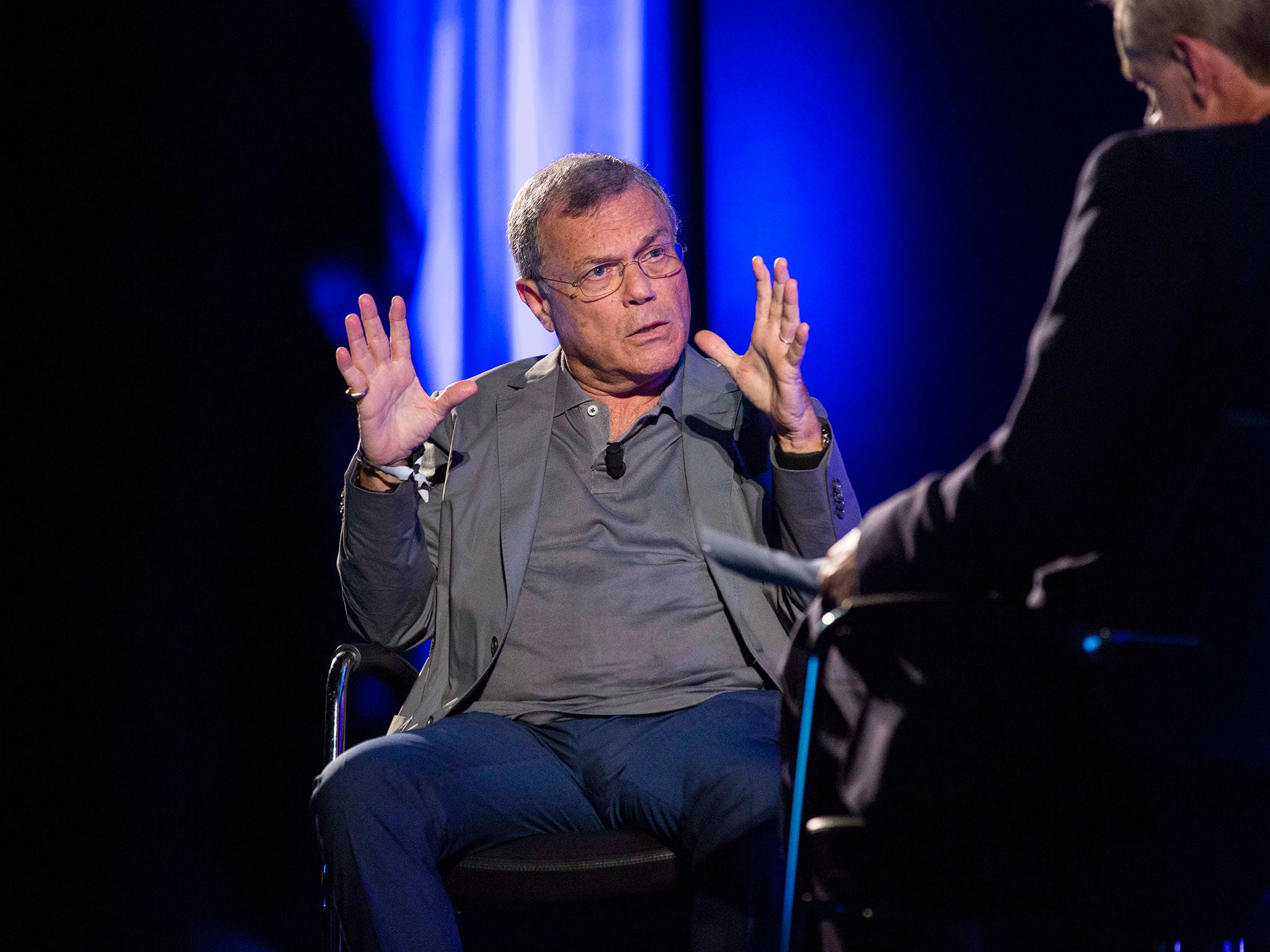Martin Sorrell in line for £70m payday if shares jump
He was already one of Britain’s best paid chieftans after pocketing £43m last year

Advertising boss Sir Martin Sorrell is in line for a £70m payday, after his lucrative share scheme hit the jackpot, stoking fears about runaway pay at Britain’s top companies – again.
Sir Martin, the chief executive of WPP, will scoop the second highest FTSE pay packet on record when he is awarded about 3.55 million WPP shares, currently worth £15.65 each. It represents a 63 per cent pay increase from last year.
Extra dividend payments will push his pay to between £65m and £70m depending on where the share prices goes this week.
He was already one of Britain’s best paid chieftans after pocketing £43m last year.
His bumper wages are linked to a controversial scheme dreamt up by WPP in 2009, called Leap. It promised to pay Sorrell up to five times an annual share purchase of more 700,000 he made in 2011 if the firm went on to hit certain targets.
The payment has once again reignited fears about runaway pay at Britain’s biggest firms.
“Leadership involves setting a good example, and for chief executives at the moment that should mean showing some restraint. Even admirers of WPP’s success will wonder whether such a vast figure can be justified,” said Stefan Stern of the High Pay Centre.
The pay will be split between about £55.6m from the Leap scheme and £8.5m in dividends from Sir Martin’s small ownership stake in WPP, which is worth nearly £300m in itself.
At last year’s WPP annual meeting about one in five WPP shareholders voted against his £43m pay package.
Despite the large figure, Sorrell fails to beat the 2009 payday for Reckitt Benckiser boss Bart Becht, who picked up £90m – the highest figure on record.
Executive pay has become a highly charged issue in Britain’s boardrooms following the so-called 2012 shareholder spring, when the bosses of firms such as Aviva and Trinity Mirror suffered a string of defeats over remuneration packages.
This annual meeting season is likely to be less militant, but a number of chief executives could face shareholder uprisings.
Pascal Soriot, the boss of UK drug giant AstraZeneca, could encounter a protest vote over his £8.4m pay-packet, which was announced last week and comes as the group struggles with a dip in performance.
The pressure has been on Mr Soriot ever since he turned down a £70bn offer for the group from US drug rival Pfizer in 2014 with a promise to hit ambitious sales targets. Shares have fallen 10 per cent since the turn of the year.
Join our commenting forum
Join thought-provoking conversations, follow other Independent readers and see their replies
Comments